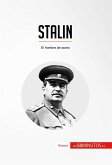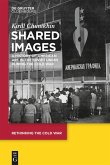In 1909, already lauded as a genius, Vera had been appointed by the doomed Tsarina to teach the women of the Romanov family how to assist Vera with her operations. Previously, while working for Cesar Roux at the world's best known medical institute in Lausanne, Vera had become the world's first woman surgeon. Later, back in Russia in 1905, she had supervised and revolutionised frontline surgery in the Russo Japanese War (1905). She won the Red Cross's highest honors - and saved the life of an enemy soldier, the Prince of Japan, while working in nightmarish conditions: a hospital train under fire; a clay-sealed tent in temperatures that regularly reached 22C below zero.
In 1919, Vera was sent to Kiev, where her hospital reforms, innovative work and academic papers crowned an extraordinary career as the only female surgeon in the world - and the first to demonstrate the life-saving abdominal procedure that Vera had evolved while working as the sole physician in a factory near her family home outside Moscow, following her return from Lausanne. In Kiev throughout the 1920s, Vera managed to combine a professional career with an unexpected burst of literary achievement. The Princess-Surgeon's prose, including a Chekhovian diary of her years as a factory doctor, has been compared to that of Pasternak.
In 1930, after founding a Ukraine hospital for facial reconstruction and being invited to head a senior department of the Kiev Medical Institute, Vera and her widowed lover (and medical assistant) Countess Maria Nirod were seized one midnight, and taken away at gunpoint during the Soviet purge of scientific intellectuals. Their whereabouts for the next ten months was never disclosed. Vera's pension was cancelled. The hospital and institute were closed. Living in extreme poverty, still with her lover and the Countess's children, an uncowed Vera died in 1932 of uterine cancer - for which, fearing malicious intervention, she refused treatment. She was 61.
The Princess's name was banished from official Soviet medical records and her tremendous contribution to medicine and the revolutionising of wartime surgery remains unacknowledged to this day. Now, Miranda Seymour recovers this lost story of a brilliant, politically outspoken woman who chose to make Ukraine her homeland, someone adored by her friends and patients, and whose achievements outrank even those of Florence Nightingale.
Dieser Download kann aus rechtlichen Gründen nur mit Rechnungsadresse in A, B, BG, CY, CZ, D, DK, EW, E, FIN, F, GR, HR, H, IRL, I, LT, L, LR, M, NL, PL, P, R, S, SLO, SK ausgeliefert werden.









